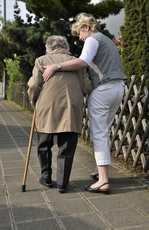by A.K. Lehmann, Paralegal.
A health care proxy and living will are a part of a comprehensive elder law estate plan.
A living will describes certain life prolonging treatments which indicate preferred medical care in the event you either suffer from a terminal illness or you will become in a permanent vegetative state. It usually requires certification by a doctor. The health care proxy gives someone else the authority to make health care decisions for you in the event you are incapacitated. Neither of these documents, however, addresses personal and emotional desires or spiritual beliefs around the end of life process.
 New York Estate Planning & Elder Law Blog
New York Estate Planning & Elder Law Blog




